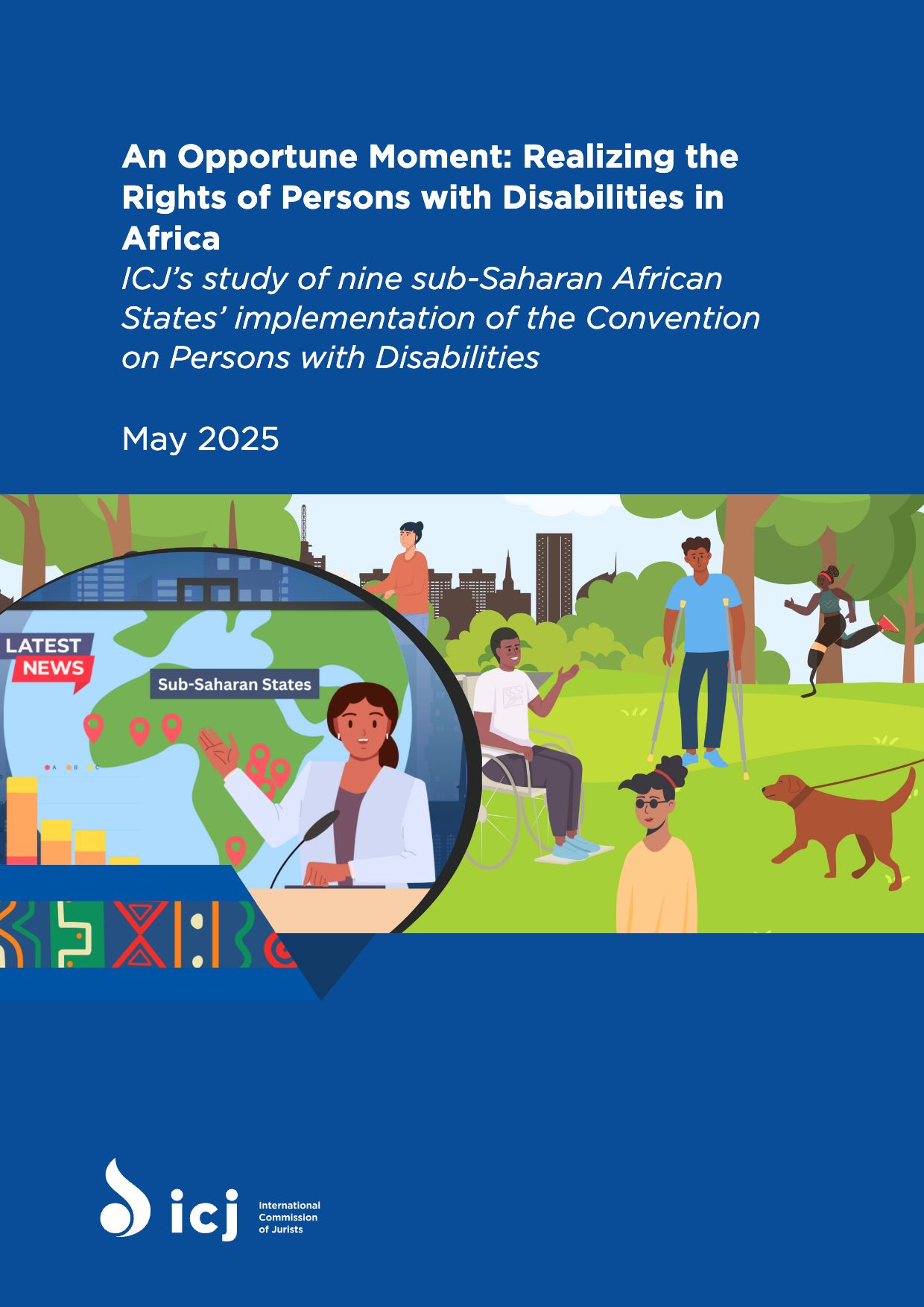African States Must Do More to Realize the Rights of Persons with Disabilities.
A new report by the International Commission of Jurists (ICJ) reveals that while nine African States have made important strides in advancing the rights of persons with disabilities, systemic gaps and persistent legal, institutional, and attitudinal barriers continue to deny persons with disabilities their fundamental human rights. Despite progress made, much more is needed by these States to make human rights protections for persons with disabilities real.
This study examines compliance by Ghana, Nigeria, Sierra Leone, Kenya, Rwanda, Uganda, Malawi, South Africa, and Zimbabwe with their obligations under the UN Convention on the Rights of Persons with Disabilities (CRPD) and the recently enforced African Disability Protocol (ADP). All nine countries are parties to the CRPD, and seven have ratified the ADP, which came into force in 2024.
The report serves as a valuable tool for stakeholders to assess the progress made in realizing the rights of persons with disabilities in the countries examined, with the aim of supporting continued advancement in the promotion of disability rights. Focusing on the implementation of the CRPD, the research draws from legal and academic sources, human rights reports, and interviews with organizations of persons with disabilities.
The ICJ presents its findings and makes specific recommendations to State authorities, justice actors, regional bodies, and civil society across the seven key areas:
- Legal capacity;
- Liberty of person;
- Access to justice;
- Political participation;
- Education;
- Employment; and
- Sexual and reproductive health rights.
Although the report focuses on these nine States, the ICJ’s recommendations are of some more general application in the broader African context. These recommendations are made to all stakeholders, including not only State authorities, but also organizations of persons with disabilities and general civil society organizations. The African Commission on Human and People’s Rights must also play an increased and robust role in the realization the rights of persons with disabilities. In that regard, a recent development is particularly welcome. At its 81st Ordinary Session, in November 2024, the African Commission adopted Resolution 617: Resolution on the Entry into Force and Implementation of the Protocols on the Rights of Older Persons and Persons with Disabilities in Africa.
Background
With Eritrea having recently become the latest State party, all African Union Member States have now ratified or acceded to the Convention on the Rights of Persons with Disabilities (CRPD). Of these 54 States, 31 have ratified or acceded to the Optional Protocol to the CRPD (OP-CRPD). Historically, numerous African stakeholders, including organizations of persons with disabilities, played an important role in the elaboration of the CRPD.
Building on existing international human rights law and standards providing for protection for the human rights of all persons, including individuals with disabilities, the CRPD has constituted something of a paradigm shift in the protection of these rights. It also presents an opportune moment for an upscaling of legal protection of these rights on domestic, regional and global levels.
Download
[Full Report] The full report “An Opportune Moment: Realizing the Rights of Persons with Disabilities in Africa. ICJ’s study of nine sub-Saharan African States’ implementation of the Convention on the Rights of Persons with Disabilities” is available here.
[Summary] The summary of the report is available here.

